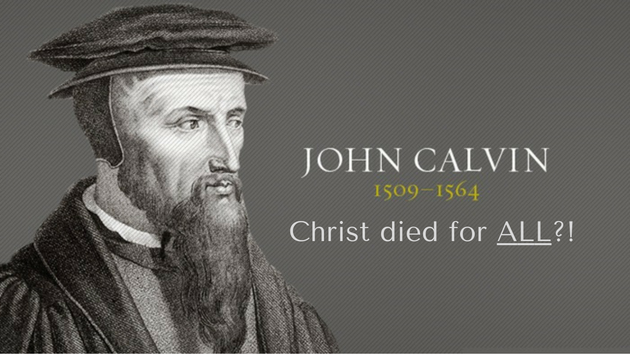
In our Book of the Week, David L. Allen’s The Extent of the Atonement, David L. Allen surveys every period of church history to demonstrate the relative popularity of limited and unlimited atonement among various groups. The first part of his book argues that limited atonement did not arise as a formulated doctrine until Theodore Beza. Even after Beza, Allen argues that many Reformed theologians held to unlimited atonement. (By unlimited atonement, Allen refers to the extent of the atonement, i.e., for whose sins Christ died.)
After surveying the early Reformers, he summarizes the findings in eight points. You might be interested to read his conclusions about the proportion of theologians holding to the two doctrines. The following comes from The Extent of the Atonement, pp. 118-119.
1. Oecolampadius, Luther, Zwingli, Bucer, Musculus, Vermigli, Bullinger, and Calvin all held to a form of universal atonement. There is no statement in any of their writings that explicitly affirms the notion that Christ died only for the
sins of the elect as one finds in later Reformed orthodoxy.
2. Calvin’s statements on the subject are often similar if not identical to his fellow Reformers. We have seen that Richard Muller lists Musculus, Vermigli, and Bullinger as affirming Hypothetical Universalism.
3. We have observed that some of these men took a limited reading of some of the key passages on the extent question even though it is clear they affirmed unlimited atonement in the sense that the sins of all men were imputed to
Christ on the cross.
4. All these men affirmed the Lombardian formula of sufficiency/efficiency, where sufficiency is understood as an objective satisfaction for all sins and efficiency is understood as the application of the atonement only to those who believe (the elect).
5. While Bucer, Calvin, Musculus, Vermigli, and Bullinger affirmed Christ died for the sins of all, in good Reformed fashion they did not affirm that he died for all equally. There was a sense in which Christ died especially for the sins of the elect with the direct intent of bringing them to salvation via election.
6. Among the second generation key Reformers, Zanchi, Gwalther, and Ursinus all affirmed universal atonement, though they often spoke with strong language to the effect that Christ died only for the sins of the elect with respect to God’s intention and purpose for the atonement.
7. We have seen that several interpreters have failed to discern the dualism in these men with respect to the atonement and have wrongly concluded that some of them were limitarians with respect to the objective nature of the atonement.
8. Of all the key first and second generation Reformers, the only one who clearly affirmed limited atonement was Beza.
James Richards harbored no doubts that most of the earliest Reformers held to universal atonement.
But, that Luther, Melancthon, Osiander, Brentius, Ecolampadius, Zwinglius, and Bucer, held the doctrine of a general atonement, there is no reason to doubt. We might infer it from their Confession at Marpurge, signed A.D. 1529, as the expressions they employ on this subject are of a comprehensive character, and best agree with this sentiment. From their subsequent writings, however, it is manifest that these men, and the German Reformers generally, embraced the doctrine of a universal propitiation. Thus, also, it was with their immediate successors, as the language of the Psalgrave Confession testifies. This Confession is entitled, “A Full Declaration of the Faith and Ceremonies professed in the dominions of the most illustrious and noble Prince Frederick V., Prince Elector Palatine.” It was translated by John Rolte, and published in London, A.D. 1614.
It is difficult to assess just how pervasive limited atonement was in Reformed thought at the end of the sixteenth century. Beza’s influence was significant, even in England. Perhaps Shultz is correct when he asserted, “Particular redemption, however, was widely accepted, and by the end of the sixteenth century it was the majority view concerning the extent of the atonement in Reformed theology.”
What say you Reformation scholars? Do you agree with Allen’s conclusions?
Read more about Allen’s book The Extent of the Atonement, or preview and buy it here at Amazon.

